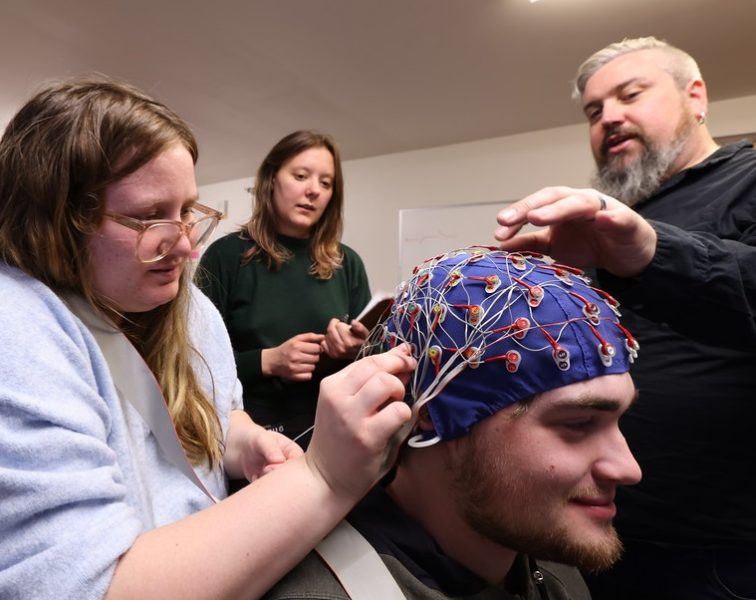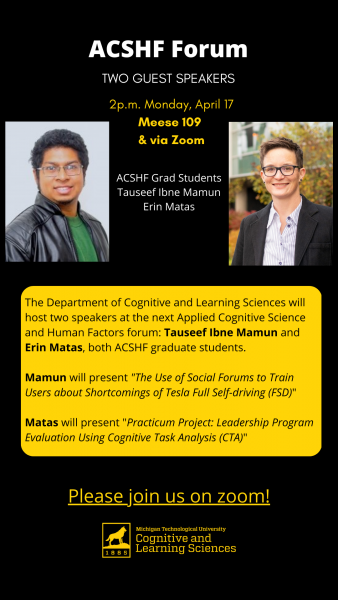Funding Opportunity for Student Research
Undergraduate and graduate students in the Department of Cognitive and Learning Sciences are encouraged to apply for the 2023 Songer Research Award for Human Health. Matthew Songer, (Biological Sciences ’79) and Laura Songer (Biological Sciences ’80) established these awards to stimulate and encourage opportunities for original research by current Michigan Tech students.
Students may propose an innovative medically-oriented research project in any area of human health. The best projects will demonstrate the potential to have a broad impact on improving human life. This research will be pursued in consultation with faculty members within the College of Sciences and Arts. The Songers’ gift and matching funds from the College will support two awards for undergraduate research ($4,000) and two for graduate research ($6,000), for research conducted over the Summer of 2023 and/or the following academic year.
Learn more about who is eligible to apply, how to apply, and how the funds may be used.
Submit applications as a single PDF file to the Office of the College of Sciences and Arts by 4:00 p.m. Monday, April 24, 2023. Applications may be emailed to djhemmer@mtu.edu. Any questions may be directed to David Hemmer (djhemmer@mtu.edu).

